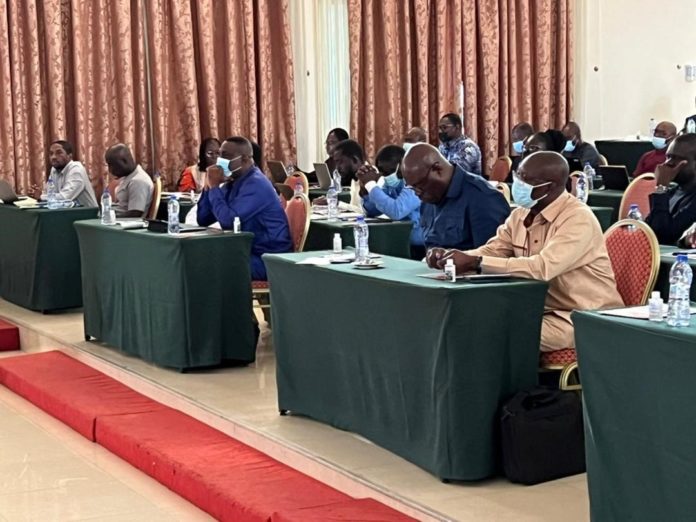The Director-General, together with the Directors of Technical, Research, Monitoring and Evaluation (TRME) and Operations participated in a week-long workshop to prepare a work plan for the upcoming PFM for Service Delivery Programme. The workshop followed the approval of the Programme by the Board of the World Bank on 10th June 2022 and subsequent issuance of the Programme Appraisal Document (PAD). The programme, which is a $150 million International Development Association (IDA) credit to the Government of Ghana, aims at deepening PFM practices within public sector institutions. The total cost of the programme is estimated at $300million and the Government of Ghana is expected to bear the additional cost of $150million.
Institutions involved in the programme include the NDPC, Ministry of Finance (Budget, Public Investment and Assets Division (PIAD), External Resource Mobilization and Economic Relations Division (ERMERD), GRA, CAGD, IAA, PPA, GAS, SIGA and Office of Parliamentary Services.
In his opening remarks, the Project Director for PFM Reforms, Dr Mohammed Sani Abdulai, stated that the Programme will contribute to the implementation of Ghana’s 2022-2026 PFM Strategy. This Strategy comprises five pillars:
1) Strategic planning and macro-fiscal framework,
2) Budget preparation and approval,
3) Control predictability and transparency in budget execution,
4) Accounting and fiscal reporting using GIFMIS, and
5) External audit and parliamentary scrutiny.
He added that a primary objective of the Government’s PFM Strategy is to help consolidate and sustain the gains from past PFM reforms over the last two decades and to address remaining PFM weaknesses, and in turn, contribute to improved PFM outcomes for Ghana. The Strategy also lays out specific interventions and measurable outcomes under each pillar.
He outlined the expected outcome from the workshop to include preparation of a 5-year high-level programme work plan and budget, preparation of a 5-year high-level programme procurement plan and M&E framework, and preparation of a first-year detailed programme work plan and budget, procurement plan and M&E framework. He charged participants to work hard to complete their institutional work plans for implementing their component of the Programme before the close of the workshop.
On next steps, he added that aside the Bank’s approval, Cabinet and Parliamentary approval will be required prior to the Programme’s effectiveness. The 5-year project is expected to close on 30th September 2027.

